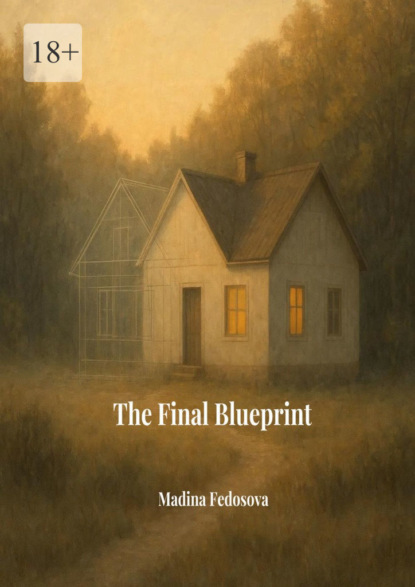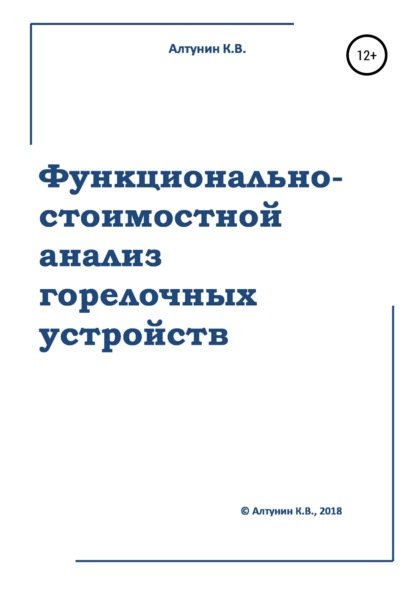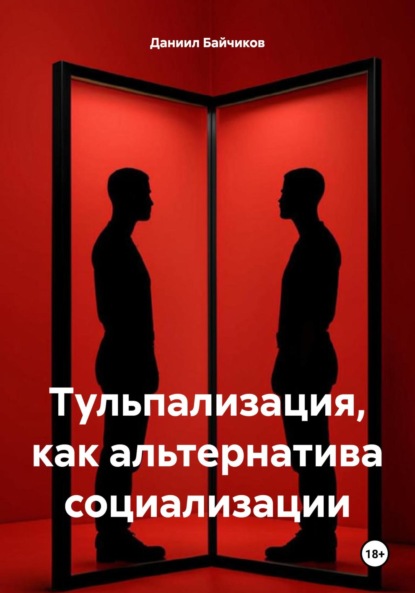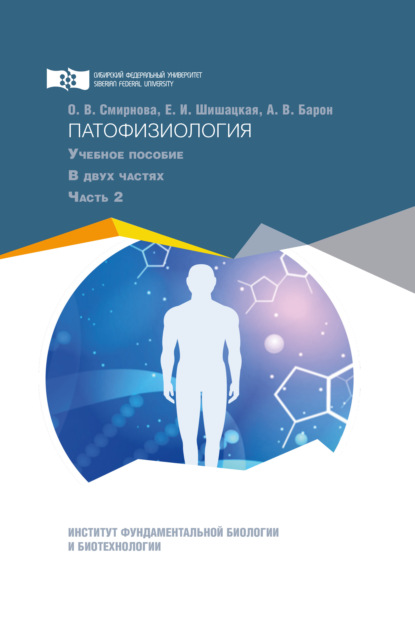- -
- 100%
- +
«João, what about the workers? Everyone in place? No one ran off to a football match?» Aurora asked, feeling fatigue beginning to build. Perfectionism and hyper-responsibility were both her curse and her blessing.
João, the elderly foreman with a face carved with wrinkles like a map of a lived life, answered with a slight smile that held respect and fatherly care. «Yes, senhorita. Everyone is working like bees in a hive. It’s even surprising. Some are even singing.»
«Singing? What are they singing?» Aurora asked, raising an eyebrow.
João shrugged. «Fado,» he replied with the air of a connoisseur. «What else? This is Portugal, senhorita. Even concrete can’t resist the charms of Fado.»
Aurora smiled. Fado – the traditional Portuguese music, full of longing and passion, the very quintessence of saudade, the Portuguese yearning for the unattainable. It seemed even the builders, stained with cement and sweat, busy with hard work, couldn’t resist its melancholic charms. She remembered the words of Amália Rodrigues, the queen of Fado: «Fado is when the soul sings, even if it’s in pain.»
Suddenly, there was a knock on the door of the site office. A tall man in work clothes entered, holding a worn hard hat in his hands. His face showed concern, as if he brought bad news.
«Senhorita Pereira?» he asked, slightly stuttering.
«Yes, that’s me. Did something happen, António?» Aurora asked, on alert, sensing a bad premonition.
António shifted from foot to foot, as if not knowing how to begin. «A small incident occurred,» he finally blurted out. «While working with the rebar, one of our guys got a little hurt. Not badly, but…»
Aurora’s heart skipped a beat. Safety on the construction site was always her absolute priority, a point she had drilled into everyone. She knew that one mistake could cost a person their health or even their life. Images from news reports about accidents on construction sites flashed in her head, and she felt a sticky fear enveloping her.
«Where is he? How badly is he hurt? Who is it?» she asked quickly, jumping up from the table as if propelled by a spring.
«He’s in the first aid station, senhorita. The wound isn’t deep, seems like just a scratch, but it needs to be treated, disinfected, all as it should be,» António replied, calming down a bit seeing her reaction. «It’s João, the new guy.»
«Let’s go,» said Aurora, heading for the exit. She felt responsible for every person on this site, especially the newcomers.
Miguel, her deputy and right-hand man, immediately stood up. «I’m with you, Aurora.»
«And I,» added Carlos. «Someone has to tell the injured guy a joke about the hospital to cheer him up. I have a whole collection!»
Aurora threw a reproachful look at Carlos but said nothing. Now was really not the time for his inappropriate jokes.
They left the site office and headed to the first aid station, located at the other end of the construction site, near the tool storage. Aurora walked quickly, almost running, trying to ward off dark thoughts. She knew there was always a risk of accidents on any construction site, but she did everything possible to prevent them, conducted safety briefings, purchased quality equipment, and demanded everyone follow the rules.
On the way, she saw Kenan, her boyfriend, walking towards her with a face expressing clear concern. Seeing her, he sped up. Kenan, like a true Eastern man, always worried about her and her safety, although he tried not to pressure her with his overprotectiveness.
«Aurora, my love, what happened? They called me from the office and said there was some incident,» Kenan asked, approaching her and gently cupping her face in his palms.
«Yes, Kenan, everything’s fine,» Aurora replied, trying to calm him. «One of the workers got a little hurt. We’re going to the first aid station to see what’s going on.»
Kenan frowned. «I’ll go with you. Safety is the most important thing.» He took her hand, squeezing her fingers tightly.
Together they headed to the first aid station, each of them worried about the injured worker and hoping the wound wasn’t serious and everything would be okay. Aurora felt Kenan’s support, his strong shoulder next to her. In such moments, she especially appreciated his presence in her life, his ability to be there when needed, without asking unnecessary questions or demanding explanations.
When they approached the first aid station, Aurora noticed a small crowd of workers gathered at the entrance. Their rough, cement-stained overalls contrasted with the anxiety frozen on their faces.
They were discussing something animatedly – it seemed they were arguing – but upon seeing her, they fell silent and parted, letting her through. This silence, suddenly coming after the hubbub, spoke volumes. Aurora knew – the workers were afraid of accidents on the construction site. Especially on such large projects where haste and complex structures created increased risk.
Aurora entered a small room, furnished modestly but impeccably clean. Whitewashed walls, the smell of iodine and fresh bandages – the standard set of any first aid station.
In the center stood a well-worn couch with cracked leather upholstery, on which sat a young guy with a bandaged arm. His face was pale as a sheet, but his eyes showed relief – it seemed the worst was over.
Next to him stood the nurse, Dora, with her constant kind smile and soothing tone that always acted on the workers like a balm on wounds. Dora was the real guardian angel of this construction site, and Aurora valued her professionalism and humanity.
«João?» Aurora asked, approaching the guy. She tried to speak softly so as not to scare him further.
João looked up at her. «Senhorita Pereira…» he muttered sheepishly, as if his guilt in what happened was more than just an accident. Aurora knew this look. The fear of losing a job because of an injury was perhaps stronger than the pain itself.
«How are you feeling? What happened?» Aurora sat down next to him on the couch, trying not to touch him to avoid causing pain. She noticed him wince when he tried to move his arm slightly.
«It’s all right, senhorita. Just cut myself a little. Didn’t notice a piece of rebar sticking out,» João tried to smile, but it came out poorly. The corner of his lip twitched in a nervous tic.
Aurora carefully examined his arm. The bandage was neatly applied by Dora, but a small, ominous spot of blood was visible on it. She knew that rebar was a real scourge of any construction site. These pieces of metal sticking out of concrete, like predator’s teeth, held enormous danger.
«The nurse said the wound isn’t deep, but I still need a tetanus shot,» João added.
«Of course, that’s mandatory,» Aurora nodded. She turned to the nurse: «Dora, do you think he needs to go to the hospital? Maybe an X-ray to rule out bone damage?»
Dora shook her head. «No, senhorita, no need. The wound really isn’t serious. I cleaned it with antiseptic, treated it with hydrogen peroxide, and applied a bandage with antibiotic ointment. He just needs to rest today and monitor the wound’s condition.»
Aurora turned to João. «João, you’re free for today. Go home and rest. You don’t have to come in tomorrow until your arm heals.» She knew he needed the money, but health was more important.
«But, senhorita, I don’t want to…» João tried to object. He was afraid he’d be considered a weakling and replaced by someone else.
«No ’buts’, João. Your health is more important than anything. We’ll pay you for today as a workday,» Aurora said firmly. In such situations, one had to be firm but fair.
João lowered his head. «Thank you, senhorita.»
Aurora smiled at him. «Get well soon, João. And be more careful next time.» She turned to the nurse: «Thank you, Dora, for your help.»
They left the first aid station. Kenan silently put his arm around Aurora’s shoulders, expressing his support. She felt his warmth and care, and it made her feel a little better.
«Everything alright?» he asked, looking her straight in the eyes. He could see right through her.
«Yes, everything’s fine. Just got a little scared,» Aurora replied, leaning against him.
«I understand. Safety on a construction site is very important.»
«Yes, it’s my biggest fear,» Aurora admitted. She remembered her childhood, when her mother worked in a factory and often came home with bruises and abrasions. She knew how easy it was to get injured in production and how hard it was to recover afterwards.
They stood in silence for a while, enjoying the quiet and each other’s closeness. Then Aurora pulled away from Kenan and looked at him gratefully.
«Thank you for being here,» she said.
«I will always be here, my love,» Kenan replied, gently kissing her forehead.
As they walked back to the temporary office, Aurora thought about João and how easily one could lose everything in an instant. She understood that she had to do everything possible to ensure safety on the construction site and protect her workers. She recalled a phrase from a famous architect: «Architecture is not only about beauty, but also about responsibility.»
When they entered the office – a spacious room with panoramic windows overlooking the hills of Sintra – Aurora immediately went to her desk. She didn’t like to put things off, especially when it concerned people’s safety. The office was furnished in a minimalist style: light walls, wooden furniture, several blueprints and models on the shelves. Photographs of Aurora’s completed projects hung on the walls: elegant villas, modern office buildings, and, of course, several social projects she was particularly proud of.
Aurora sank into an ergonomic chair that, despite its cost, seemed insufficiently comfortable to her. She always felt tension in her back after several hours at the computer.
Organized chaos reigned on the desk: stacks of documents, blueprints, material samples, supplier catalogs, a notebook with sketches and notes. Aurora always said that a tidy desk was a sign of an empty mind.
She started her laptop, waited for it to load, and opened the folder with documents for the social housing project. Today she planned to double-check all instructions and safety regulations again. Aurora knew that on construction sites, especially when building social housing where cheaper materials were often used and workers with little experience were hired, the risk of accidents increased.
She delved into reading the instructions. Building codes and regulations in Portugal were quite strict, but Aurora always tried to be extra cautious and use the most modern technologies and materials to ensure maximum safety on the site.
She opened a browser and started searching for information about new technologies for protecting workers from falls from height. This problem was especially relevant when constructing multi-story buildings. Aurora was interested in new systems of safety ropes and nets that could prevent serious injuries.
She also searched for information about new materials that could increase the building’s fire resistance. Lately, cases of fires in residential buildings constructed using cheap materials had become more frequent in Europe. Aurora wanted to make sure her project met the highest fire safety standards.
She remembered an incident on one of her previous construction sites when a worker was seriously injured due to a safety violation. Aurora had personally paid for his treatment and rehabilitation, but the case left a deep mark on her soul. Since then, she had become even more attentive to safety issues on the construction site.
Suddenly, a knock on the door distracted her.
«Come in,» Aurora said, without looking up from the computer screen.
At that moment, Miguel entered the office, which smelled of coffee and blueprints. «Aurora, good evening. I was thinking…» He hesitated, adjusting his glasses in thin frames. «Maybe we should conduct an additional safety briefing for all the workers? You know, considering the recent changes in regulations, and just in general…»
Aurora looked up from the blueprint on which she was meticulously drawing the facade of one of the houses. She rubbed the bridge of her nose tiredly. «Good evening, Miguel. And what do you suggest?» Her voice sounded a bit hoarse after a long day on the site.
Miguel beamed. «Invite a specialist who will talk about the new rules and technologies. You know, so much new stuff is appearing now… Modern scaffolding, safety systems, even hard hats with impact sensors!» He was clearly enthusiastic about this topic.
Aurora raised an eyebrow. «Hard hats with impact sensors? That’s something new.» A thought about the cost of such helmets flashed in her head, but she immediately dismissed it. People’s safety was paramount. «Great idea, Miguel. Go ahead. Let’s do it tomorrow.»
Miguel literally shone. «I knew you’d like it! I’ve already started preparing the program. I’ll invite a health and safety engineer from Lisbon, Manuel Pereira. He’s considered one of the best in the country. Can you imagine, he even consulted on the construction of the Vasco da Gama Bridge!»
Aurora smiled back, but a spark of irony flashed in her eyes. Miguel was always a bit of a perfectionist. «Wonderful. Just remind him that we’re building a residential complex, not a bridge. And that the main thing is simple and clear instructions for the workers.»
«Of course! I’ll explain everything to him. But still, new technologies are cool!» Miguel persisted, continuing to list all the advantages of modern safety systems.
Aurora smiled. She knew that with such reliable and enthusiastic assistants as Miguel, she could handle any difficulties and build not only beautiful houses but also a safe workplace for her employees. A huge responsibility lay on her shoulders, but she was ready to bear it. Because she knew that behind every house she built were people’s lives. And she had to do everything possible to ensure those lives were safe.
Chapter 4CrossroadsAurora spent the rest of the day as if she had declared a personal war on pixels. She stared intently at the monitor, furiously studying the latest safety technologies, as if the fate of the world depended on it – or at least the integrity of every unsecured bolt on the future construction site. Obsessive thoughts: «If even one child falls from this slide, I’ll personally carry them in my arms for the rest of their days!» – crept into her head, preventing her from concentrating.
Memories of her mother, who for years had bent her back in a factory reeking of machine oil, where the risk of injury was so commonplace that even the local cats wore hard hats (well, almost), gave her no peace. Aurora knew what «production necessity» was – a euphemism behind which negligence, cynical disregard for human life, and a desire to save on everything except the director’s salary usually hid.
She read about «smart concrete» with self-healing microcapsules (who would have thought concrete could be smart?!), motion sensors that reacted even to a butterfly’s breath (she wondered how they distinguished a butterfly from a little thief?), and fire suppression systems that, according to advertising brochures, could flood an entire stadium with foam in a matter of seconds (the main thing was not to flood the spectators along with it).
In the evening, when Kenan dropped her off at the entrance, gently touching her temple with his lips, Aurora felt squeezed out like a lemon. He, with his perceptive gaze, immediately noted the shadows under her eyes, too noticeable even in the semi-darkness of the car’s interior. «You need to rest, Aurora,» he said, and his voice held a sincere concern that she valued but simultaneously feared a little. She was afraid he would see in her not a successful architect, but that little girl who hid in a corner from her drunken stepfather.
Stepping into the spacious, honey-lit living room, Aurora hoped to cast aside all thoughts and simply collapse on the sofa. The parquet under her feet was polished to a shine, the fire crackled cozily in the fireplace, creating an atmosphere of warmth and calm. But then her gaze treacherously caught on a stack of blueprints sprawled defiantly on the table. It was her obsession, her personal crusade – the concept of the «ideal home» for those less fortunate than her.
«I can’t right now,» she whispered, addressing the stack of paper rather than herself. Fatigue weighed on her shoulders like a concrete slab. «Sleep is for the weak, and I… I’m just a very, very efficient architect,» she thought, sarcastically imitating a favorite phrase of one of her former bosses. But her conscience, that eternal nag, wouldn’t let her postpone the task. Sighing like Sisyphus before another push of the stone, she turned on the desk lamp, casting a cozy yellow light, and sat down at the table.
The blueprints teemed with details, lovingly drawn by her hand: compact but functional kitchens (no bigger than an airplane cockpit, but everything necessary would fit!), bright rooms with huge windows (so that even on the cloudiest day it would seem the sun was shining), common areas for socializing and play (no dreary playgrounds with peeling paint!). Aurora dreamed of creating not just housing, but a kind of sanctuary where people would feel safe, know they were valued, and could finally straighten their shoulders.
And then her gaze caught on one of the blueprints. It was a sketch of a children’s room. A small, almost prison-like window facing the inner courtyard. Aurora suddenly felt a sharp, almost physical pain. Her own childhood… A tiny room in an old house where she had lived with her mother and stepfather. The window was almost always boarded up, and she felt she was suffocating from the stale air and the feeling of hopelessness. She even remembered the pattern on the wallpaper – yellow daisies, faded and somehow melancholy. «Daisies can be depressing too,» she thought with a bitter smirk.
Her heart constricted painfully. Impulsively grabbing a pencil, she began furiously redoing the blueprint. She doubled, tripled the size of the window! Made it not just a window, but a kind of glowing wall. She wanted the children living in these houses to feel free, like birds in the sky. To see not dreary walls, but a world full of possibilities. To know for sure: life is not just yellow daisies on faded wallpaper.
Absorbed in creating the perfect blueprint for the children’s room, Aurora didn’t notice how time dissolved in the semi-darkness of her study. The clock hands had long passed midnight, and only the lamp on her desk, like a beacon, pulled her concentrated face out of the thick darkness. She forgot about fatigue, about the obsessive feeling of guilt that had pursued her since youth, about the burdensome past from which it seemed impossible to escape. Now she was just an architect, a creator, in whose hands a dream was being born – a dream of a better world for those who needed it most.
For a moment, her fingers froze over the blueprint. A thought crossed her mind: «What do I, in essence, know about children? About children living in poverty?» She remembered her first room – a tiny, damp closet with a window barred to protect against thieves. In that room, instead of bright wallpaper, there were shabby walls, and instead of toys – fragments of old furniture. But even there, in that wretched corner, her mother managed to create an atmosphere of warmth and love. «The main thing is for children to feel safe,» she would say, covering Aurora with an old, patched blanket. «Then they can grow up to be good people, no matter what.»
Suddenly feeling a chill, Aurora threw a warm plaid, knitted by her grandmother long before her birth – the only thing reminiscent of family, over her shoulders. Approaching the window, she gazed at the nighttime Sintra. The city slept, covered with a velvet blanket of darkness. Only rare streetlights flickered below, resembling a scattering of stars that had accidentally fallen from the sky. Aurora loved Sintra for its soothing silence, its winding streets preserving the spirit of history, the feeling of safety she experienced here, far from the hustle and cruelty of the big world.
But even in this quiet corner, memories found loopholes. An image of her mother arose in her head, working at the factory for twelve hours a day to feed her, exhausted but always finding the strength to smile and hug Aurora. She remembered the fear of her stepfather, whose unpredictability kept them in constant tension. His every appearance in the house was like a harbinger of a storm.
Aurora knew that her success was largely due to her mother. It was she who taught her to value work, to be strong and never give up. She often repeated: «You have a talent, Aurora. Use it to make the world better.» And that was precisely why Aurora felt such a huge responsibility towards those in need. She wanted to give them a piece of the warmth and love she herself had lacked so much in childhood.
Returning to the table, Aurora again took a pencil in her hands. She wanted these houses to be not just beautiful and functional, but truly «alive,» filled with light and warmth. So that within these walls people would feel protected and happy, could rest from daily worries and gather strength for a new life. She pondered that a children’s room is not just a place for sleep and play, it’s a whole world where a child’s personality, their values and dreams, are formed.
Suddenly, it seemed to her that she heard a quiet whisper – her mother’s voice, full of love and support. «You’re doing everything right, my girl. Don’t stop.» Aurora smiled through her tears. She knew her mother was always with her, in her heart, guiding and inspiring her.
She continued working until the first rays of the sun broke through the night gloom, coloring the sky in delicate pastel tones. Tired but satisfied, Aurora leaned back in her chair and looked at the blueprints. The children’s room now looked completely different. A huge window flooding the room with sunlight, light walls visually expanding the space, cozy furniture made from natural materials. Everything was there for children to feel happy and protected.
Aurora knew this was only the beginning of a long journey. Much more work lay ahead before her dream would become a reality. But she was ready for any difficulties. A fire burned in her heart that would not let her give up. She poured herself a cup of strong coffee, took a fresh pastry from the local bakery, and went out onto the balcony to greet the dawn. Sintra was waking up, filling with the sounds of life. Aurora smiled. Today would be a good day, and she would do everything to make this day beneficial for those in need.
Chapter 5Dream HomesThe affordable housing project, named «Hope,» had become for Aurora not just a job – but a personal crusade against injustice. An obsession? Perhaps. A fixed idea, akin to the one that haunted Captain Ahab? Most likely. But this obsession was her shield and sword, allowing her to forget, at least for a while, about the ghosts of the past.
Aurora drew up plans as if weaving protective spells. She worked around the clock, surviving on coffee from a thermos and random snacks, forgetting about sleep and a normal schedule. Kenan, her Eastern prince-businessman, was beginning to worry seriously. Once, finding her at three in the morning over another blueprint, he tried to pull the tablet from her hands, muttering something about the dangers of overwork and the benefits of a hammam.
– Kenan, please, – Aurora exhaled wearily, – you know how important this is to me.
– Important? More important than healthy sleep? Or, perhaps, more important than me? – he asked with feigned indignation, but his eyes showed genuine concern. – Listen, you’re an architect, not Mother Teresa in a hard hat!
She smiled. Kenan knew how to bring her back to earth.
For Aurora, «Hope» was not just square meters. She dreamed of creating a place where children could draw rainbows on the walls without fear that the paint would last a lifetime (and who would wash it off later?). A place where parents could afford a cup of coffee in the café across the street, instead of frantically counting the cents left until payday (though, admittedly, Aurora herself couldn’t always afford it during her student years).
Every detail was thought out to the smallest things: from a convenient layout (so that even in a «one-room» you could dance the tango alone, if the neighbors didn’t mind, of course), to eco-friendly materials (so you wouldn’t have to explain to your grandchildren why they have three arms). She wanted to use solar panels on the roof (as in the best European projects) to reduce electricity bills (and so the residents could boast to their friends that they lived in a «green» house).






